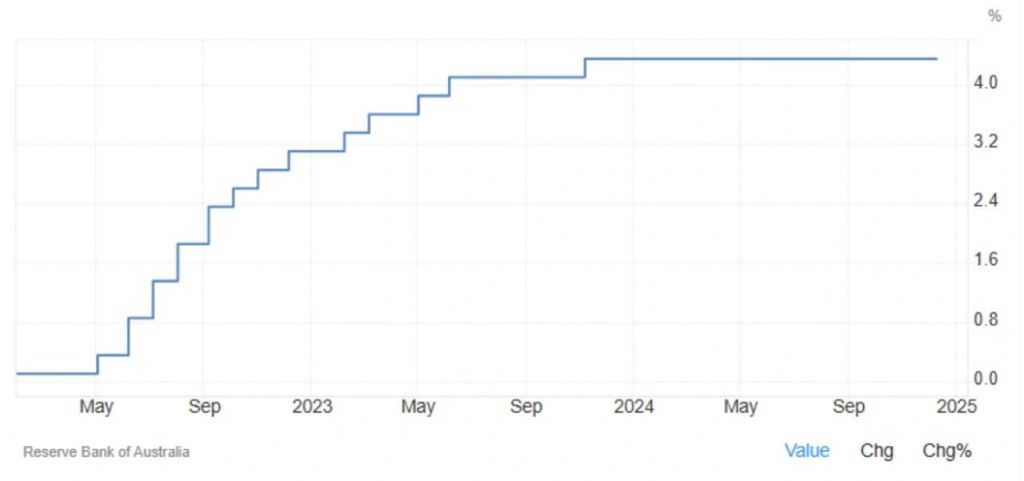
RBA Keeps Cash Rate Unchanged for Ninth Straight Meeting
The Reserve Bank of Australia (RBA) opted to retain its cash rate at 4.35% during its final meeting of 2024, marking the ninth consecutive gathering where borrowing costs were held steady in line with market expectations. This decision reflects the central bank’s cautious approach to navigating the current economic landscape. Despite headline inflation easing substantially, the RBA noted that underlying inflation remains persistently high, failing to reach its target midpoint of 2 to 3% until 2026. The RBA’s decision to maintain the cash rate was informed by its confidence that inflation is moving sustainably towards the target, though at a slower pace than desired.

Mixed Economic Data, but Consistent with Forecasts
The RBA’s decision comes amid mixed recent economic data. While some indicators suggest a cooling in economic activity, others remain consistent with forecasts. Household consumption, for instance, is expected to pick up more slowly than anticipated, contributing to continued subdued output growth and a potentially sharper deterioration in the labor market. This mixed performance indicates that the Australian economy is still grappling with challenges such as sluggish wage growth and reduced consumer confidence. The RBA acknowledged these risks but chose to maintain the cash rate, emphasizing the need for a balanced approach to supporting economic recovery without reigniting inflationary pressures.
Inflation Outlook Remains Key Consideration
The RBA’s assessment of inflation is a central component of its monetary policy strategy. While headline inflation has eased considerably, the bank noted that underlying inflation remains too high, posing a challenge in moving towards its 2 to 3% target by 2026. The committee expressed some confidence that inflation is gradually moving towards its target, albeit at a slower pace. The RBA’s decision to keep rates unchanged reflects its cautious stance, with an emphasis on monitoring inflation developments closely and being prepared to adjust the policy stance if necessary, especially in light of ongoing geopolitical uncertainties that could impact global economic conditions.
Future Guidance and Data-Dependent Decisions
Looking ahead, the RBA’s policy stance will remain data-dependent, with the central bank relying on evolving economic data and assessments of risks. This approach includes considerations of geopolitical uncertainties, which could affect global trade and financial markets. The RBA also maintained the interest rate on Exchange Settlement balances at 4.25%, signaling its continued tight monetary stance. The committee will closely monitor household consumption patterns, wage growth, and other economic indicators to guide future rate decisions. The RBA’s strategy appears to be one of cautious optimism, with a focus on balancing the need for economic stimulus against the risk of reigniting inflation.
Share
Hot topics

What Is Spot Trading?
Spot trading refers to the buying or selling of an asset for immediate delivery in the current market (or “spot”) and does not contain any future obligations, expiration dates, or...
Read more




Submit comment
Your email address will not be published. Required fields are marked *